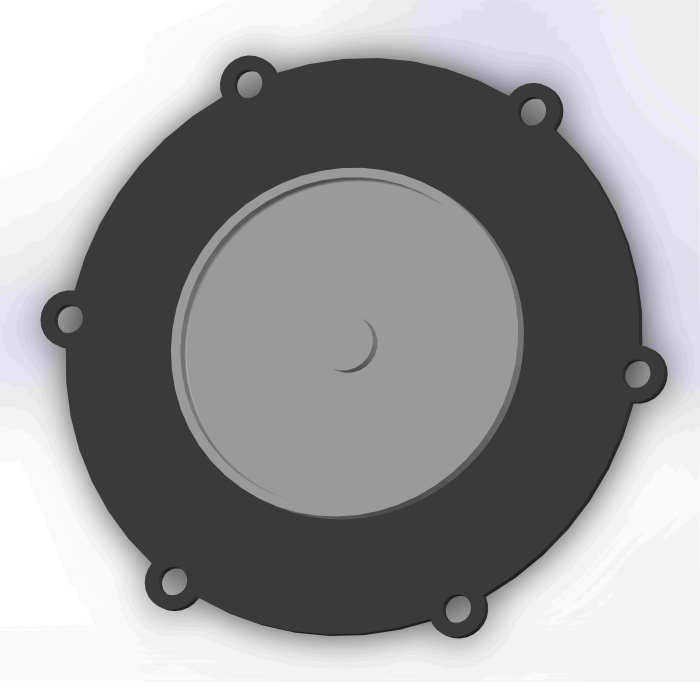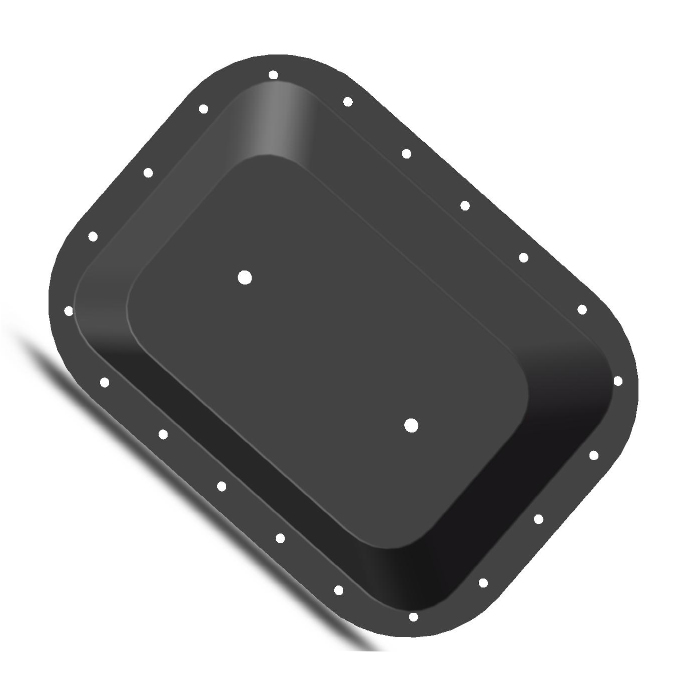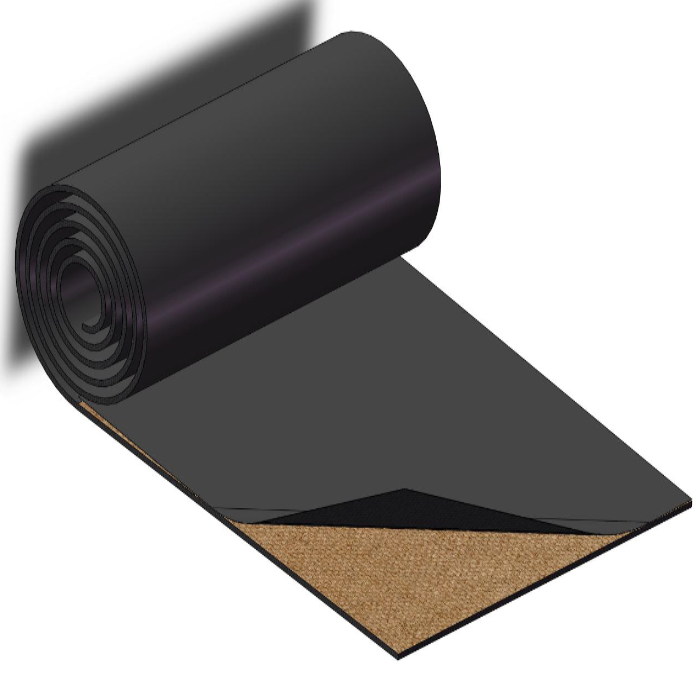GENERAL SEALTECH is located in the historic and cultural city of Hangzhou. The company mainly produces Solenoid Pulse Valve Diaphragms,Gas meter diaphragms,LPG CNG Diaphragm,Rolling diaphragm,Rubber diaphragms,Teflon / PTFE Diaphragm and other series of products, which are widely used in industries such as chemical industry,Battery industry,Biomedical field. We can provide graphics or samples for design and production according to user needs.
The company strictly manages, creates high-quality products, and keeps pace with the times for enterprise development. Good quality, excellent service, good management, and excellent technology have become one of the satisfactory enterprises in the same industry. Our company has strong product design and development capabilities.
| Product name | singer valve rolling diaphragm |
| Place of Origin | China |
| Brand Name | GENERAL SEALTECH |
| Colors | white,Recommended black |
| Type | Diaphragm |
| Quality | 100% Inspection |
| Certification | RoHS,REACH,WRAS,FDA,EN681-1,etc |
| Export region | America,Africa,Oceania… |
| Export country | USA,Japan,Italy,Australia,Holy See (Vatican City),United Arab Emirates,Swaziland…etc |
| Temperature | -40 °C to +220°C |
| Size | Customizable size |
| Product Material | EPDM,ACM,FVMQ,HNBR,AEM,etc |
| Feature | Durable, water/dust/oil proof |
| Packaging Details | Export Standard Packing |
| After-sales Service | Online technical support |
| MOQ | 100 Pieces(negotiable) |
| Port | Ningbo |
| Application | Seal for Automotive,Valve…etc |
| Processing Service | Cutting, Extruded and Moulded, Plastic Packing |
| Properties | Chemical Resistance,Aging Resistance,Oil Resistance…etc |
| Supply Ability | 50000-200000 Piece/Pieces per Month |
| Lead time (days) | 7-15 (To be negotiated) |
Please note: This table is for reference only, please consult us for specific information.
Another advantage of singer valve rolling diaphragm is that they can provide a certain degree of protection to prevent cross contamination of substances, which is particularly important for fields such as laboratories,healthcare,metallurgy,environment.
If the medium used is corrosive, corrosion-resistant diaphragm materials should be selected;
Necessary protective measures should be taken to minimize damage to objects that come into contact with the already installed diaphragm.
Provide customized services exclusive to customers, and customize various diaphragm products according to their needs to meet the needs of different industries.
singer valve rolling diaphragm—FAQs Guide
2.Are singer valve rolling diaphragm used in safety relief valves and pressure relief devices to prevent overpressure situations?
3.As a singer valve rolling diaphragm manufacturer,what services can we provide?
4.How do singer valve rolling diaphragm perform in high-vibration environments, and what measures are taken to ensure their reliability in these conditions?
5.What is the role of singer valve rolling diaphragm in controlling the flow of aggressive or corrosive chemicals in chemical processing applications?
6.Are there singer valve rolling diaphragm designed for use in critical industries such as aerospace and healthcare, and what unique properties do they possess?
7.Do singer valve rolling diaphragm have electrical conductivity properties, and can they be used in applications requiring EMI/RFI shielding?
8.Are there specialized singer valve rolling diaphragm for high-pressure applications, and what features make them suitable for these conditions?
9.About singer valve rolling diaphragm,How can I get the best price and quality?
10.What are the common materials used in diaphragm manufacturing, and how do they impact the diaphragm’s performance?
11.What types of sealing mechanisms are commonly used with singer valve rolling diaphragm, such as clamped, bolted, or adhesive seals?
12.Are singer valve rolling diaphragm suitable for use in applications involving harsh radiation or extreme pressure differentials?
13.Can singer valve rolling diaphragm be used in air-operated or pneumatic systems, and how do they contribute to system functionality?
14.What types of testing and quality control measures are applied to ensure the reliability and performance of singer valve rolling diaphragm?
1.How does the thickness of a singer valve rolling diaphragm affect its flexibility and pressure resistance?
The thicker the diaphragm, the less flexible it will be and the more pressure it will be able to resist. This is because thicker diaphragms are more rigid and can withstand higher pressures without deforming. Thinner diaphragms are more flexible and can deform more easily under pressure, but they are also less resistant to pressure.
2.Are singer valve rolling diaphragm used in safety relief valves and pressure relief devices to prevent overpressure situations?
Yes, diaphragms are commonly used in safety relief valves and pressure relief devices to prevent overpressure situations. The diaphragm is a flexible membrane that is designed to open when the pressure inside the device reaches a certain level, allowing the pressure to be released.
3.As a singer valve rolling diaphragm manufacturer,what services can we provide?
Free design and samples offered.Custom package and stickers.
4.How do singer valve rolling diaphragm perform in high-vibration environments, and what measures are taken to ensure their reliability in these conditions?
Diaphragms are designed to be highly reliable in high-vibration environments. To ensure their reliability, measures such as using thicker diaphragm material, using multiple layers of material, and using dampening materials such as rubber or foam are taken. Additionally, the diaphragm should be securely mounted to the structure to prevent it from vibrating excessively. Finally, the diaphragm should be inspected regularly to ensure that it is not damaged or worn out.

5.What is the role of singer valve rolling diaphragm in controlling the flow of aggressive or corrosive chemicals in chemical processing applications?
Diaphragms are used to control the flow of aggressive or corrosive chemicals in chemical processing applications. They act as a barrier between the chemical and the process equipment, preventing the chemical from coming into contact with the equipment and causing corrosion or other damage. Diaphragms are also used to regulate the flow of the chemical, allowing for precise control of the process.
6.Are there singer valve rolling diaphragm designed for use in critical industries such as aerospace and healthcare, and what unique properties do they possess?
Yes, there are diaphragms designed for use in critical industries such as aerospace and healthcare. These diaphragms are typically made from high-performance materials such as PTFE, FKM, and EPDM, which offer superior chemical and temperature resistance, as well as excellent durability and strength. Additionally, these diaphragms are designed to meet the stringent requirements of these industries, such as tight tolerances, high-pressure ratings, and low-leakage rates.
7.Do singer valve rolling diaphragm have electrical conductivity properties, and can they be used in applications requiring EMI/RFI shielding?
No, diaphragms do not have electrical conductivity properties and cannot be used in applications requiring EMI/RFI shielding. Diaphragms are typically made of rubber or plastic and are used to control the flow of air or other gases.
8.Are there specialized singer valve rolling diaphragm for high-pressure applications, and what features make them suitable for these conditions?
Yes, there are specialized diaphragms for high-pressure applications. These diaphragms are designed to withstand higher pressures and temperatures than standard diaphragms. They are typically made from reinforced elastomers or metal materials such as stainless steel or Hastelloy. These materials are chosen for their strength and durability, as well as their ability to resist corrosion and wear. Additionally, these diaphragms are designed with thicker walls and reinforced edges to provide additional strength and stability.

9.About singer valve rolling diaphragm,How can I get the best price and quality?
The price depends on the quantity, design and size. If you order more, the price and shipping will be cheaper.
10.What are the common materials used in diaphragm manufacturing, and how do they impact the diaphragm’s performance?
Common materials used in diaphragm manufacturing include rubber, silicone, neoprene, polyurethane, and polyester. Each material has its own unique properties that can affect the performance of the diaphragm.
Rubber is a popular choice for diaphragms due to its flexibility and durability. It is also resistant to heat, chemicals, and abrasion. However, rubber can be prone to cracking and tearing over time.
Silicone is a synthetic material that is highly resistant to heat and chemicals. It is also very flexible and can be used in a wide range of applications. However, silicone can be prone to tearing and is not as durable as rubber.
Neoprene is a synthetic rubber material that is highly resistant to heat, chemicals, and abrasion. It is also very flexible and can be used in a wide range of applications. However, neoprene can be prone to cracking and tearing over time.
Polyurethane is a synthetic material that is highly resistant to heat, chemicals, and abrasion. It is also very flexible and can be used in a wide range of applications. However, polyurethane can be prone to cracking and tearing over time.
Polyester is a synthetic material that is highly resistant to heat, chemicals, and abrasion. It is also very flexible and can be used in a wide range of applications. However, polyester can be prone to cracking and tearing over time.
11.What types of sealing mechanisms are commonly used with singer valve rolling diaphragm, such as clamped, bolted, or adhesive seals?
In general, singer valve rolling diaphragm will use these sealing mechanisms:
1. Clamped Seals: Clamped seals are the most common type of diaphragm seal. They are typically used in applications where the pressure is relatively low and the temperature is not too extreme. Clamped seals are easy to install and provide a reliable seal.
2. Bolted Seals: Bolted seals are used in applications where the pressure is higher and the temperature is more extreme. They are more difficult to install than clamped seals, but provide a more reliable seal.
3. Adhesive Seals: Adhesive seals are used in applications where the pressure is low and the temperature is not too extreme. They are easy to install and provide a reliable seal. However, they are not as reliable as clamped or bolted seals.
12.Are singer valve rolling diaphragm suitable for use in applications involving harsh radiation or extreme pressure differentials?
No, diaphragms are not suitable for use in applications involving harsh radiation or extreme pressure differentials. Diaphragms are designed to be used in applications with relatively low pressure differentials and are not designed to withstand extreme temperatures or radiation.

13.Can singer valve rolling diaphragm be used in air-operated or pneumatic systems, and how do they contribute to system functionality?
Yes, diaphragms can be used in air-operated or pneumatic systems. Diaphragms are flexible membranes that are used to separate two different areas of a system. They are used to control the flow of air or other gases in a system. They can be used to regulate the pressure of the system, to control the flow of air, and to act as a check valve. Diaphragms can also be used to dampen vibrations and reduce noise.
14.What types of testing and quality control measures are applied to ensure the reliability and performance of singer valve rolling diaphragm?
To ensure the reliability of the product, our singer valve rolling diaphragm will apply these tests and quality:
1. Visual Inspection: Visual inspection is used to check for any visible defects in the diaphragm material, such as cracks, tears, or other damage.
2. Pressure Testing: Pressure testing is used to ensure that the diaphragm can withstand the pressure it is designed to handle.
3. Leak Testing: Leak testing is used to check for any leaks in the diaphragm material.
4. Durability Testing: Durability testing is used to ensure that the diaphragm can withstand the wear and tear of its intended use.
5. Chemical Testing: Chemical testing is used to check for any chemical reactions that could affect the performance of the diaphragm.
6. Electrical Testing: Electrical testing is used to check for any electrical issues that could affect the performance of the diaphragm.
7. Temperature Testing: Temperature testing is used to ensure that the diaphragm can withstand the temperatures it is designed to handle.
Tags: z22yh high pressure fuel pump diaphragm,mercruiser fuel pump diaphragm,holley accelerator pump diaphragm,custom rubber diaphragm

